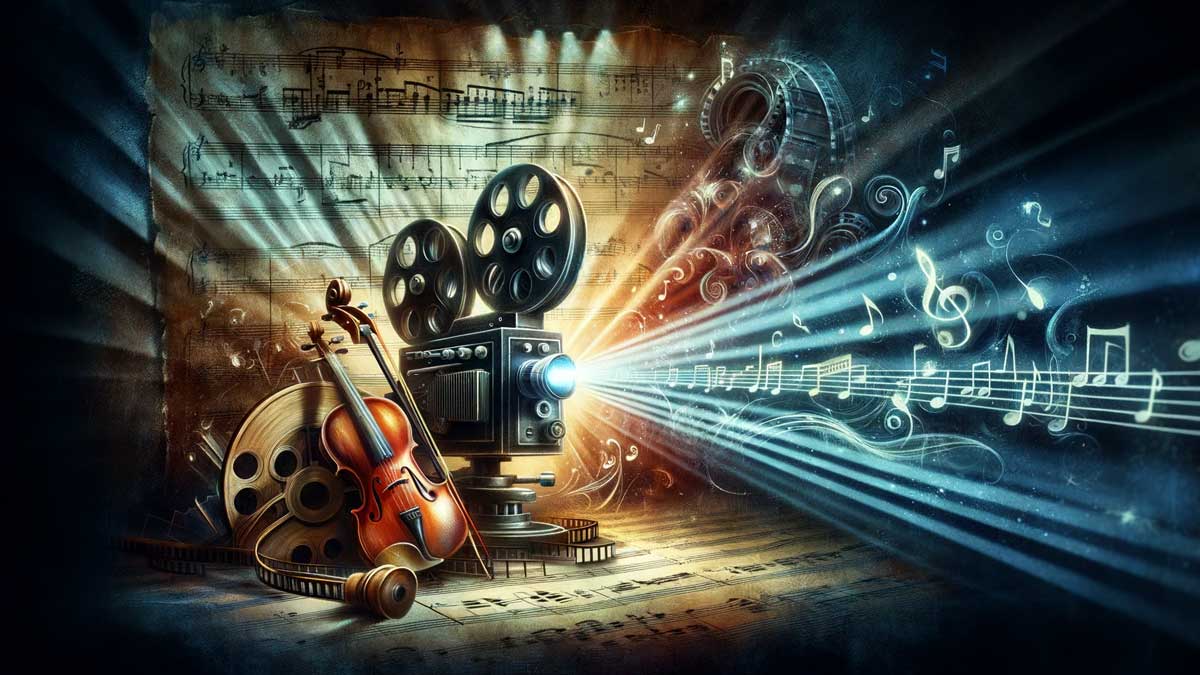In the realm of film and television, the power of music to captivate and move audiences is undeniable. Among the various genres and styles, classical music holds a unique place, offering a rich tapestry of emotions, drama, and storytelling. It comes as no surprise, then, that many renowned composers have turned to classical inspirations when crafting the scores for some of our most beloved cinematic experiences.
In this article, we embark on a captivating journey to explore the influence of classical music in film scores, uncovering how these compositions have shaped and enriched the cinematic landscape of storytelling.
Setting the Mood
With its profound emotional range, classical music is a treasure trove of inspiration for film composers seeking to set scenes, establish tone, and evoke intense feelings. Drawing from the haunting melodies of Rachmaninoff or the triumphant sounds of Beethoven, these timeless compositions create tension, suspense, romance, or melancholy within film narratives.
The interplay between visuals and music creates a profound synergy, enveloping viewers in a tapestry of emotions, and enhancing the overall impact and resonance of the storytelling on the silver screen.
Enhancing Narrative Depth
Classical compositions possess a narrative quality that lends itself seamlessly to storytelling in films. Through their use of musical themes, motifs, and variations, classical composers have mastered the art of musical storytelling.
Film composers often incorporate these techniques into their scores to enhance the emotional depth of the characters and the plot. By utilising leitmotifs or recurring musical themes associated with specific characters or ideas, film scores can evoke familiarity, create anticipation, and add layers of meaning to the on-screen narrative.
Conveying Timeless Beauty
With its timeless allure and universal appeal, classical compositions have the remarkable ability to transcend time and culture, making a lasting impact on the world of film. Film composers astutely recognize the power of classical music, utilising its beauty, refinement, and emotive qualities to infuse their scores with an enduring and immersive quality.
The distinctive sound of a solo violin, capable of evoking deep emotions, adds a layer of poignancy to cinematic moments. The grandeur and richness of a symphony orchestra bring depth and intensity to epic scenes, heightening the emotional impact and creating a sense of grandiosity. The delicate and introspective notes of a solo piano can infuse a scene with intimacy, capturing the nuances of human emotions.
Evoking Powerful Emotions
The emotional range of classical music is vast and profound. From the depths of despair to moments of euphoria, classical compositions can evoke a myriad of emotions in listeners. Film composers tap into this emotional palette to intensify the impact of key moments in a film.
Whether it is the stirring crescendo of a symphony during a climactic scene or the tender strains of a solo piano accompanying a heartfelt dialogue, classical music amplifies the emotional resonance of the on-screen story, creating an immersive experience for the audience.
Captivating Compositions
In this section, we will be focusing on the remarkable works of three renowned composers: John Williams, Hans Zimmer, and Nicholas Britell. Let’s dive into the mesmerising soundscapes created by these talented composers and explore the transcendent connection between classical music and the magic of the silver screen.
John Williams: Weaving Classical Magic into Film Scores
John Williams, a revered film composer, effortlessly weaves a magical tapestry in his scores. Influenced by the great classical masters like Wagner, Holst, and Strauss, Williams seamlessly incorporates classical elements into his compositions. His remarkable works, including the iconic score for “Schindler’s List,” showcase his mastery of inspiration.
Through poignant melodies and soaring orchestral arrangements, Williams captures the essence of emotion and timelessness, infusing his film scores with profound depth. By harnessing the power of these influences, he creates cinematic soundscapes that resonate with audiences, enriching the visual narratives and leaving an indelible impact.
Hans Zimmer: A Modern Fusion of Classical and Contemporary
Hans Zimmer, known for his unique and innovative style, skillfully blends classical elements with modern sound design in his film scores. Films like “Interstellar” and the “Pirates of the Caribbean” series bear witness to Zimmer’s ability to create grandeur, emotion, and excitement.
Through his compositions, Zimmer creates a modern fusion of classical inspirations, utilising orchestral arrangements, thematic motifs, and evocative harmonies. By infusing his scores with classical influences, Zimmer elevates the cinematic experience, providing audiences with a dynamic and immersive musical journey that adds depth and resonance to the visual narratives.
Nicholas Britell: Classical Elegance in Contemporary Stories
Nicholas Britell has garnered recognition for his ability to infuse classical elegance into contemporary stories. In his score for the TV series “Succession,” Britell employs classical inspirations to enhance the narrative and character development.
Through his compositions, he creates a sophisticated musical backdrop that captures the essence of the characters and their complex relationships. The fusion of classical elements with contemporary storytelling adds a layer of depth, elegance, and emotional resonance to the series, illustrating how classical influences can shape and enrich the modern narrative landscape.
Conclusion
Classical music has left an indelible mark on the world of film scores, enhancing storytelling, evoking emotions, and creating lasting impressions on audiences. The influence of classical compositions in film scores is a testament to the enduring power of this genre and its ability to transcend boundaries.
As we immerse ourselves in the captivating world of cinema, let us appreciate the profound impact of classical music, as it intertwines with the visual narrative, elevating the emotional experience and enchanting us with its timeless melodies.



